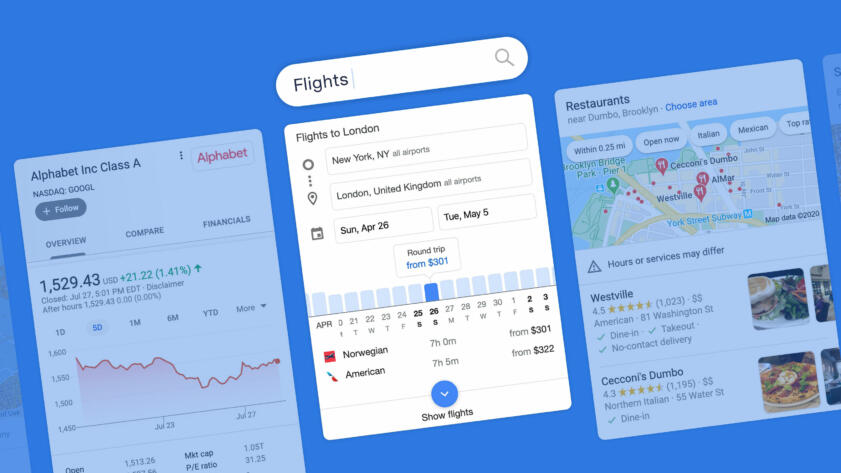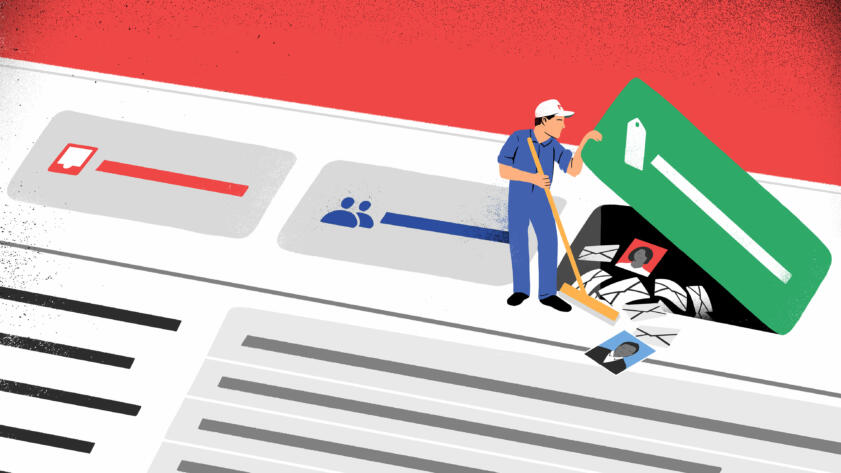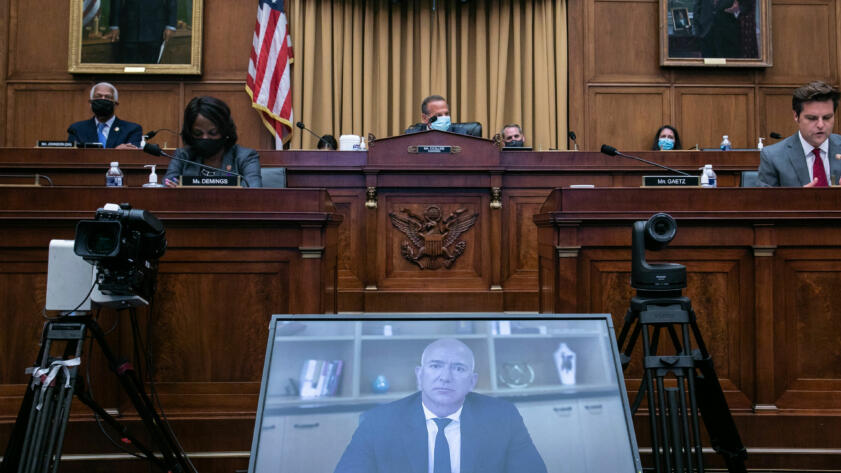In a contentious five-and-a-half-hour congressional hearing, the chief executives of four of the world’s biggest tech companies defended themselves against accusations that their companies have abused their monopoly power and that they are politically biased.
It was the first time the four CEOs have appeared together before Congress (albeit they did so by video chat), and it was Amazon chief executive Jeff Bezos’s first time ever testifying before Congress. The hearing came more than a year after the House Judiciary Committee launched an antitrust investigation into the companies—one that has involved compiling 1.3 million documents, including some juicy ones the committee released as the tech CEOs spoke.
The hearing was a preview of sorts of the report lawmakers have promised they’ll release when their investigation concludes. From the start, it was clear Democrats on the antitrust subcommittee came for blood, battering the CEOs with well-researched, pointed questions—and that the report they plan to release will likely be damning.
“Our founders would not bow before a king,” subcommittee chair Rep. David Cicilline said, introducing the four CEOs. “Nor should we bow before the emperors of the online economy.”
Republicans, however, appeared to be having a different hearing entirely. With the exception of Rep. Kelly Armstrong, who posed questions about everything from geofencing warrants to third-party cookies, Republicans on the panel largely focused on allegations that the tech companies were biased against conservative voices.
Our team at The Markup live-tweeted the hearing, and our reporters have provided a breakdown of each company’s big moments at the hearing and what they mean.
(For a little background reading, here’s a bit of history on antitrust in the tech age.)
Alphabet/Google
by Adrianne Jeffries
This hearing presented a sharp contrast to Sundar Pichai’s appearance before the full House Judiciary Committee in 2018, when multiple Democratic lawmakers used their time to defend the company. This time, Democrats had sharp and aggressive questions for Pichai, starting with the very first questioner, Rep. Cicilline, who asked, “Why does Google steal content from honest businesses?”

Google the Giant
Google’s Top Search Result? Surprise! It’s Google
The search engine dedicated almost half of the first page of results in our test to its own products, which dominated the coveted top of the page
Cicilline was referring to Google’s practice of scraping content from the web and placing it high up in search results. He cited The Markup’s investigation, published earlier this week, into how much of Google’s search results page is taken up by its own properties and content. We found that 63 percent of the coveted first screen of search results either leads to a Google property or provides a “direct answer” on the search results page.
“To me that is evidence that Google is increasingly a walled garden which keeps users on Google’s sites, even if Google doesn’t have the most relevant information,” he said. “And it’s economically catastrophic for other companies online.”
Pichai said Google prioritizes providing users the most relevant information to queries, and that ads appear on a small number of queries.
Pichai fielded the second-highest number of questions overall, according to The New York Times. Republican lawmakers spent considerable time questioning Pichai about defense contracts and Google’s content moderation decisions, while Democratic lawmakers were more explicitly focused on Google’s impact on its competition.

Google the Giant
Swinging the Vote?
Google’s black box algorithm controls which political emails land in your main inbox. For 2020 presidential candidates, the differences are stark.
Armstrong, a Republican, also posed a series of questions about whether Google uses its much touted privacy policies as a way to shut competitors off from its lucrative data. Experts have speculated that privacy regulation could benefit incumbents.
Rep. Greg Steube also asked about perceived censorship of Republican emails in Gmail, saying that his father had stopped receiving campaign email. The Markup investigated that topic earlier this year, finding Gmail frequently places political email into a folder for “marketing, deals and other offers.” However, we did not find any partisan bias.
Amazon
By Annie Gilbertson, with Jon Keegan
In his first congressional appearance, Bezos faced tough questions about Amazon’s aggressive competitiveness. Lawmakers particularly honed in on a recent report by The Wall Street Journal from earlier this year that found Amazon was scooping up seller data and using it to develop its own private label products. Last week, the WSJ reported that Amazon was using its investment arm to gain access to startups’ intelligence, only to turn around and develop competing offerings themselves.
When questioned on these topics, Bezos provided few answers.
He testified that it’s against Amazon’s policy to use data to develop private label items but could not “guarantee” the policy had never been violated. (He said they’re investigating the WSJ reports.)
“Does Amazon ever access and use third-party seller data when making business decisions?” asked Rep. Pramila Jayapal (D-WA), who represents the district housing Amazon’s Seattle headquarters.
“I can’t answer that question yes or no,” Bezos replied.
Amazon also faced accusations that the e-commerce behemoth squeezes small businesses and engages in predatory pricing schemes. Rep. Joe Neguse (D-CO) said he was concerned about Amazon creating an “innovation kill zone.”
To Congress, Bezos insisted Amazon’s interests are aligned with sellers’. Third parties now make up “approximately 60 percent of physical product sales on Amazon,” according to Bezos’s statement to the committee.
“Amazon’s success depends overwhelmingly on the success of the thousands of small and medium-sized businesses that also sell their products in Amazon’s stores,” Bezos wrote in his opening statement.

Banned Bounty
Amazon’s Enforcement Failures Leave Open a Back Door to Banned Goods—Some Sold and Shipped by Amazon Itself
The online giant bans products related to drugs, spying and weapons, but we found plenty for sale; one of the items bought on the site left a grim trail of overdoses
Amazon is without a doubt the biggest player in e-commerce. In his opening statement, Bezos claimed that Amazon makes up “less than 4 percent of U.S. retail,” but later, when pressed by Neguse, Bezos conceded that Amazon’s share of U.S. retail e-commerce is actually 40 percent.”
How well it polices its platforms was another source of concern for lawmakers. Earlier this year, The Markup found Amazon.com sold items banned from its site, indicating failures in Amazon’s enforcement. Some of the items were sold not by third parties, but by Amazon itself.
Amazon said it blocks billions of suspicious listings and that sellers are responsible for following the rules.
Rep. Hank Johnson (D-GA) asked Bezos why counterfeit goods continue to be a problem and why Amazon believes it should not be held responsible for third-party products, even though it takes a cut from their sales. (Johnson is backing legislation that supporters say would ensure best practices and crack down on online counterfeit sales.)
Amazon has argued in court that federal law protects the platform from being responsible for the conduct of third parties on its site, and Bezos told lawmakers the company employs more than 1,000 people to combat counterfeits.
“We do a lot,” Bezos said.
by Aaron Sankin
Probably the biggest Facebook-related news of the day came not directly from the hearing but from the release of internal emails that talked about the company’s acquisition of Instagram in 2012. The emails, obtained by the committee and released during the hearing, were between Facebook CEO Mark Zuckerberg and various Facebook employees.
In one, Zuckerberg wrote about purchasing Google—though he told lawmakers he couldn’t remember specifics, but the reference was likely a joke.
“One reason people underestimate the importance of watching Google is that we can always buy any competitive startups,” he wrote. “But it’ll be awhile before we can buy Google.”
Zuckerberg also faced a litany of questions about Facebook’s history of acquiring rival companies, copying features from competitors, and restricting competitors’ access to its platform. Zuckerberg said that many of the companies he had purchased were both competitors and complementary businesses.
“We compete hard. We compete fairly. We try to be the best,” Zuckerberg said.
Republicans on the committee expressed concerns about perceived biases in how the platform moderates content. Rep. Matt Gaetz (R-FL), who has been a particularly vocal critic of Facebook, repeatedly asked Zuckerberg about whether the company was intentionally suppressing conservative viewpoints on the platform, citing an investigation by the right-wing Project Veritas about moderators who work for the company voicing anti-Trump sentiments.
That said, nine of the top 10 best performing Facebook posts on the day of the hearing were from ideologically conservative news outlets.
Apple
by Colin Lecher
Compared to the other witnesses at the hearing, Apple CEO Tim Cook got off with remarkably light questioning. He was asked by far the fewest questions during the hearing. But the questions that Cook did field targeted the core issues around Apple and monopoly power.
Rep. Hank Johnson (D-GA) raised key criticisms of the company’s practices, which largely involve Apple’s iron grip over the services that are allowed in the App Store. As Johnson pointed out, many developers find Apple’s rules opaque and unequally applied.
Companies like Basecamp, the maker of email app Hey, have accused Apple of unfairly pressing them for a 30 percent cut of proceeds to operate in the App Store.
Cook noted that most apps in the App Store aren’t required to pay to be there, and for those that do pay, the 30 percent cut has been consistent. But Johnson questioned what, exactly, prevented Apple from raising the price in the future.
“What’s to stop Apple from increasing commissions to 50 percent?” he asked.
Cook responded that there is “a competition for developers.” Some of those developers, however, like Basecamp, have said that Apple is so large they effectively have no choice but to play by Apple’s rules, whatever they are.
Rep. Val Demings (D-FL) expressed concern that Apple has been “picking winners and losers in the app economy.” Apple, she pointed out, was scrutinized for shutting out apps meant to manage kids’ screen time around the time the company introduced its own, similar tools, raising concerns that it was using its power to sideline competition.
Cook, in response to similar questions from Lucy McBath (D-GA), stuck to the defense Apple has made in the past—that competitors’ parental control apps were harming kids’ privacy. “We were concerned, congresswoman, about the privacy and security of kids,” Cook said.
McBath was not convinced.
Apple “sidelined” its competition, she said, and had used its power to stifle smaller businesses.
“This is fundamentally unfair,” she said.





